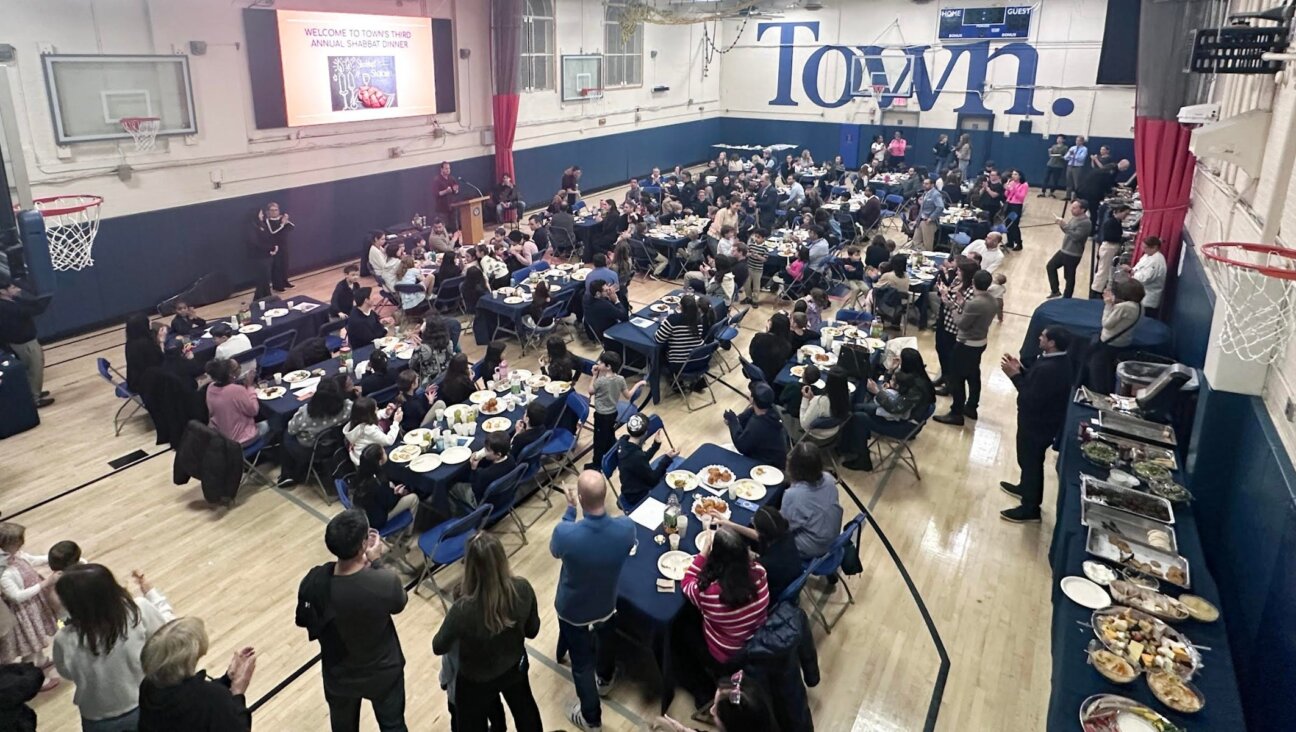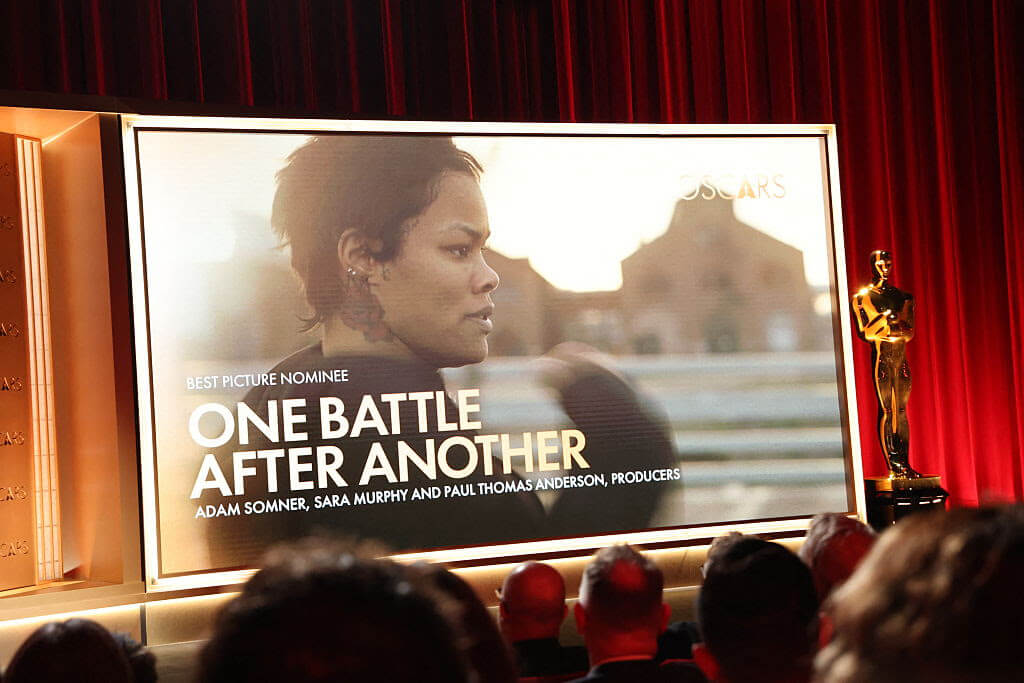Top Nine Holocaust Movies To Watch On The Ninth Of Av

Graphic by Angelie Zaslavsky
If you’re a graduate of the traditional Jewish summer camp system, you probably think of Tisha B’Av, the Ninth of Av, the commemoration of the destruction of the Temple, as “Holocaust Movie Day.”
Observant Jews dwell on mourning on the Ninth of Av. Not only do we fast and refrain from any bodily pleasures, but the customs also dictate that one is even forbidden from learning most religious texts (because study brings joy) for the first half of the somber day.
Luckily, Hollywood has made it simpler to get through the long summer fast day, thanks to dark films that set the mood.
And if you’re tired of seeing “Schindler’s List” and “Pianist” re-runs, check out these somber, thought-provoking films, produced over the past 10 years:
- “Ida” (Polish, 2013): This eerily quiet film follows Anna, a young novice nun in Poland in the 1960s, who is sent to visit her only surviving relative, her aunt, before taking her vows. Aunt Wanda, a wild Jewish judge, tells Anna that her name is actually Ida Lebenstein and that her parents were killed during the war. Wanda and Ida go on a journey to find Ida’s parents’ remains; Poland is shown as bare, dead, austere.
- “Les Innocentes” (French, 2016): Another World War II/nun film. The story isn’t Jewish per se (though there is one Jewish character), but it certainly transports you to post-war Poland, to a French Red Cross nurse who discovers a convent with several pregnant nuns, having been raped by Soviet soldiers toward the end of the war. Based on a true story, the gripping film is a brutal portrayal of the powerlessness of women caught in war, of rape, and the traumas that remain long after the last bullets are fired. Available on Amazon Prime Video.
- “The Phoenix” (German, 2014): This one is worth watching for its elegant cinematism alone. After surviving the camps, Nelly, a cabaret singer, goes through face reconstruction surgery after surviving a bullet wound. Upon returning to Berlin, she finds her German husband Johnny, who doesn’t recognize her, thinking she is dead. When he asks her to impersonate his wife, in order to collect her inheritance, Nelly discovers a much darker side of the man she once called hers._ Available on Netflix Instant._
- “Remembrance” (German, 2011): While hosting a dinner party in her swanky New York apartment, Hannah Levine stops short when she sees an interview on her kitchen TV of Tomasz, her Polish lover who helped her escape a concentration camp years ago. She was sure he had died. Levine begins to search for the man who saved her life, while reflecting in powerful flashbacks to the war years. Available on Netflix Instant.
- “Aftermath” (Polish, 2012): This film stirred controversy in Polish media when it opened, for daring to discuss Polish collaboration with the Nazis. Aftermath is the story of the village Jedwabne, of two Polish brothers who uncover the shocking Jewish history of their hometown. The brothers try to commemorate the approximately 300 Jews who were burned alive by their Polish neighbors — and are faced with deadly hostility from the locals, who refuse to face history. The power of this film is in its reliance on the human imagination: There are no Shoah scenes, no flashbacks, no violin melodies – it’s a film made up of simple contemporary shots, which retain the past in the constant foreground. In this realist nightmare, the Jews are only imagined, and therein lies its greatest strength: The horrors are not limited to film effects and director’s cuts. They are all the worse, because they exist in the mind of the viewer alone.
- “Woman in Gold” (English, 2015): Maria Altmann, an Austrian Jew who escaped Vienna before the Holocaust, now living in Los Angeles, discovers that her family’s pre-war art collection included Gustav Klimt’s seminal painting of her aunt, Portrait of Adele Bloch-Bauer I, known as the “Woman in Gold”. Altmann, along with her young idealistic lawyer, embarks on a crazed art restitution mission to reclaim the painting from the Austrian government. The development of the court case is shown alongside a series of flashbacks to Altmann’s youth in Vienna.
- “The Counterfeiters” (German, 2007): The story of Operation Bernhard, a secret plan by the Third Reich to weaken the British economy by flooding it with forged currency. The Nazis force Jewish concentration camp prisoner Salomon Sorowitsch leading the forgery team of Sachsenhausen prisoners; Sorowitsch is tormented over assisting the German war effort.
- “In Darkness” (Polish, 2011): Angieszka Holland’s acclaimed film tells the story of two Catholic sewer workers in Lwow, Poland, who hide Jews in the city’s sewer system during the Nazi liquidation of the Jewish ghetto. Its graphic scenes of brutality and desperation, coupled with the claustrophobia of the setting, earned the film an Oscar nomination.
- “Sarah’s Key” (French, 2010): Based on Tatiana de Rosnay’s best-selling novel, this drama follows a journalist living in Paris who discovers her new apartment was once owned by a Parisian Jewish family, who was arrested by the Nazy-collaborating Vichy government. Her research leads her to a horrific discovery about the life of Sarah Starzynski, the young girl who lived there then. The film is a rare portrayal of the notorious 1942 Vel d’Hiv roundup, where 13,152 Jews were kept in a stadium for several days, until they were deported to internment camp at Drancy, and from there mostly sent on to Auschwitz.
Updated on July 19, 2018.

















